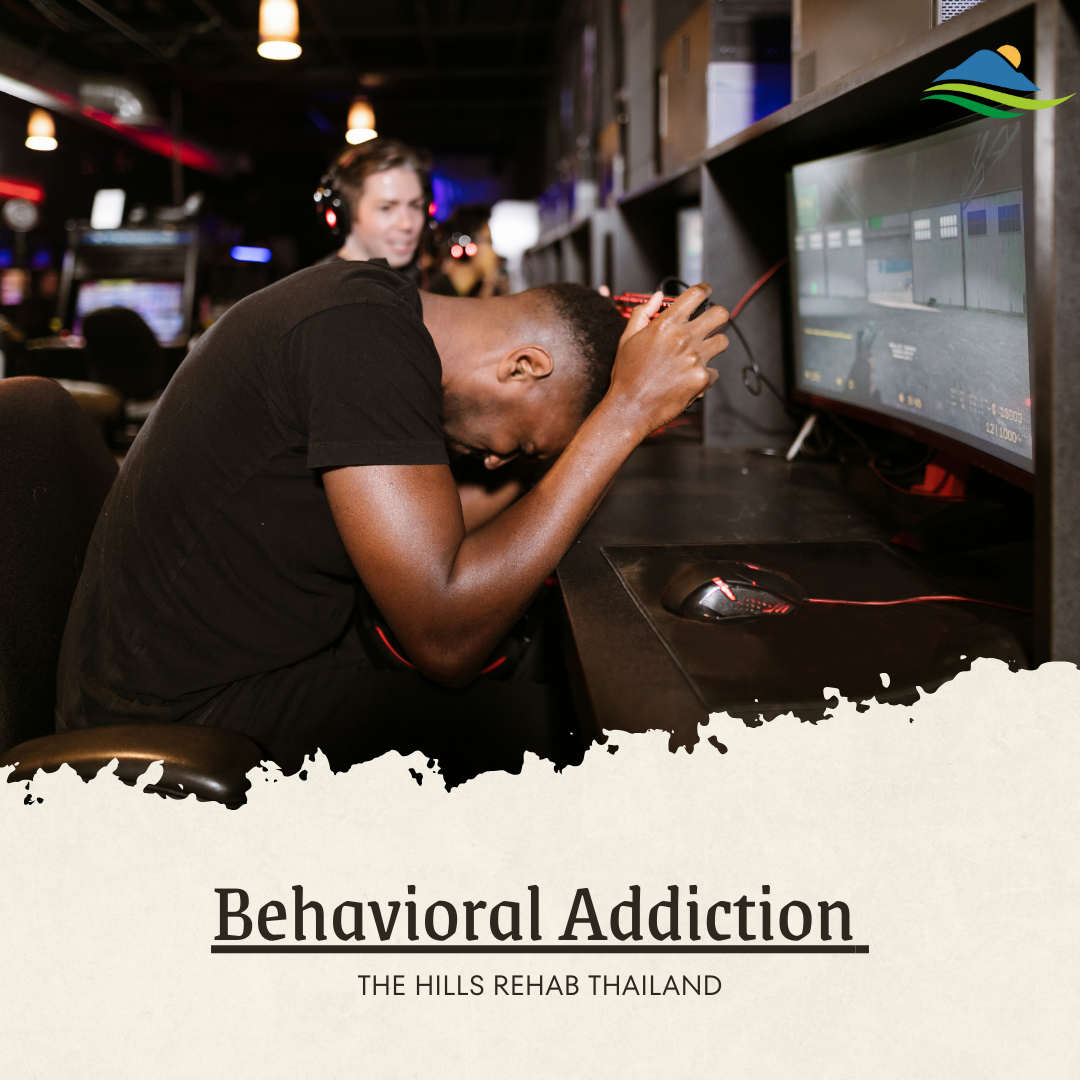
Behavioral addiction , also known as process addiction, refers to compulsive engagement in a specific behavior despite negative consequences. Unlike substance addiction, which involves the abuse of drugs or alcohol, behavioral addiction centers around repetitive behaviors that trigger a reward response in the brain. These behaviors can become so consuming that they interfere with an individual’s daily life, relationships, and overall well-being.
Gambling Addiction : Characterized by an uncontrollable urge to gamble despite adverse consequences. Individuals with gambling addiction may experience financial difficulties, relationship problems, and emotional distress.
Internet Addiction : Excessive use of the internet, particularly online gaming, social media, or pornography, to the extent that it interferes with daily functioning and leads to neglect of responsibilities and relationships.
Gaming Addiction : Compulsive playing of video games to the point of neglecting other areas of life, such as work, school, and social activities. Gaming addiction can lead to sleep disturbances, poor academic or job performance, and social isolation.
Sex Addiction : Intense preoccupation with sexual thoughts, fantasies, or behaviors, often leading to negative consequences such as relationship conflicts, sexually transmitted infections, and legal problems.
Food Addiction : Obsessive consumption of food, often high in sugar, fat, or salt, leading to obesity, health problems, and emotional distress. Individuals with food addiction may use food as a coping mechanism for stress or emotional issues.
Shopping Addiction (Compulsive Buying Disorder) : Excessive and compulsive shopping behavior, resulting in financial problems, debt, and hoarding of possessions. Shopping addiction is often used as a coping mechanism for emotional distress or low self-esteem.
Exercise Addiction (Compulsive Exercise): Obsessive and compulsive engagement in exercise, to the detriment of physical health and social relationships. Exercise addiction can lead to injuries, fatigue, and an unhealthy obsession with body image.
Behavioral addictions share similarities with substance addictions in terms of brain mechanisms, psychological symptoms, and treatment approaches. Treatment for behavioral addiction may involve therapy, support groups, medication, and lifestyle changes aimed at addressing underlying issues and promoting healthier behaviors.
Are you in need of assistance on your journey to recovery? Contact us. We are here to help. At our reputable rehab center, we offer a complimentary consultation to provide guidance and support tailored to your specific needs.
"*" indicates required fields
TH:
USA/CAN:
UK:
AUS:
Whatsapp: